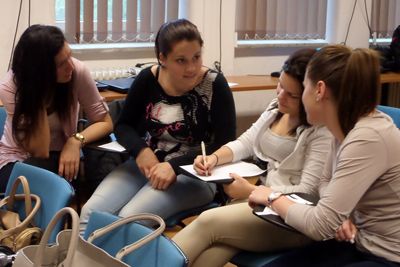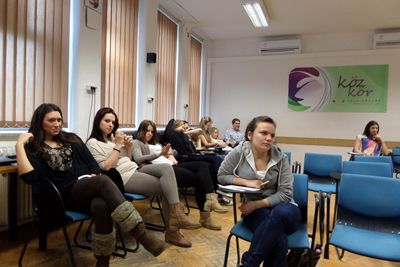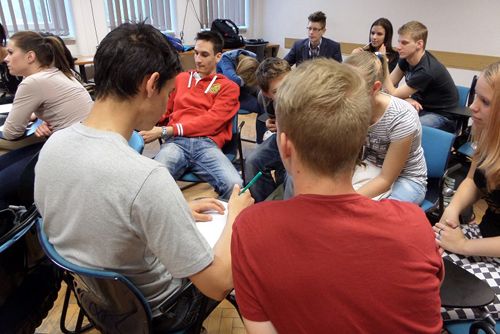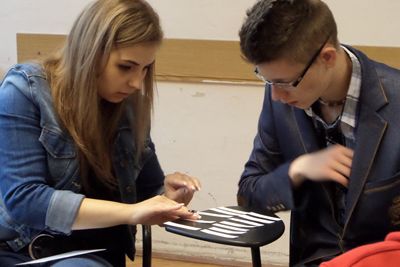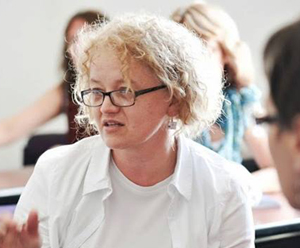
Ingrid Alexovics
Ingrid Alexovics has graduated from USC Shoah Foundation’s Teaching with Testimony in the 21st Century program armed with a brand-new lesson about heroes to teach her students about empathy and responsibility while also learning English.
Alexovics teaches English at Radnóti Miklós Economic Secondary School in Pecs, Hungary, to high school and adult school classes. She was part of the 2013 Teaching with Testimony in the 21st Century program in Hungary – the second cohort to complete the program in Hungary. The program for teachers in Czech Republic, Poland and Hungary provides professional development training centered on the educational use of Holocaust eyewitness testimony. The workshop prepares them to produce their own testimony-based classroom lessons and activities.
Alexovics said she heard about Teaching with Testimony from Karyn A. Posner-Mullen, the Public Affairs Counsellor of the US Embassy in Budapest, who told her about Andrea Szonyi, USC Shoah Foundation’s international training consultant in Budapest, and USC Shoah Foundation’s programs for teachers.
Deciding to participate in Teaching with Testimony, held in June 2013 with a follow up workshop in July 4-6 2014 at Central European University in Budapest, turned out to be one of the best professional decisions she’s made, Alexovics said.
“It was the first time I had I ever watched testimonies and I was greatly moved by them,” she said. “I instantly had the feeling that I need to share these stories with my students for their emotional benefit.”
The lesson module she created is focused on the concept of “heroes” –how the concept has changed throughout history from the demi-gods in Greek mythology to the modern-day ‘man hero,’ who could be someone ordinary like a Holocaust survivor, witness or rescuer.
“I chose this topic because I wanted my teenage students to be able to identify themselves with the person in the video,” Alexovics said. “To understand and illustrate how the concept of heroes evolved from the almost unimaginable demi-god through the superhero of the clichés of the movie industry to something ordinary, ethical and simply human, I used extracts from the testimony of Leo Hymas, a liberator.”
In a class to teach English, meaningful content is very important, since it can serve as an extra chance to educate students toward tolerance and against discrimination, which is a problem in Hungary, Alexovics said. Her students had already watched testimony in another class but were fascinated by Leo Hymas’s story.
Watching his testimony helped them appreciate history beyond just facts and understand it from the personal perspective of a human being.
“Leo Hymas's testimony helped my students look beyond the stereotypes and also to have an insight into a story of a person who, in the end, with all the characteristics of an everyday person who made the right decisions in life, was still considered to be a hero,” she said.
This is the benefit to teaching with testimony, Alexovics said. After watching testimony, the experiences of the survivors become part of our own experiences, and we start to think of ourselves as connected to one another.
“I think this helps students start thinking about life and their decisions and understand that being part of a society makes us responsible not only for ourselves but for other people too,” she said.
Below: Alexovics's class completes the "Heroes" lesson
